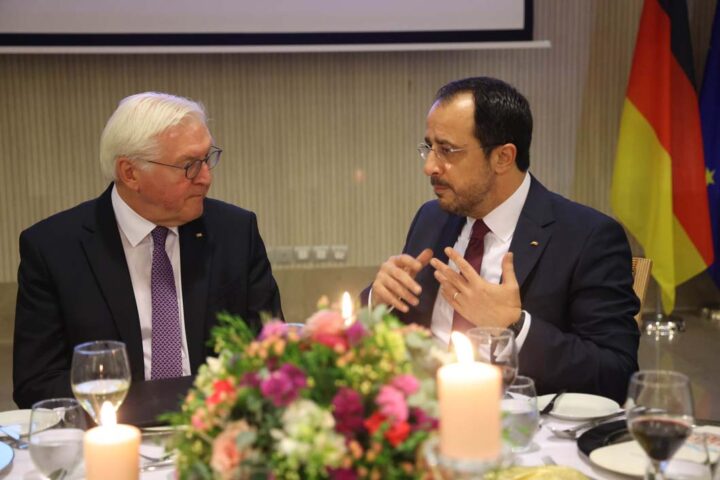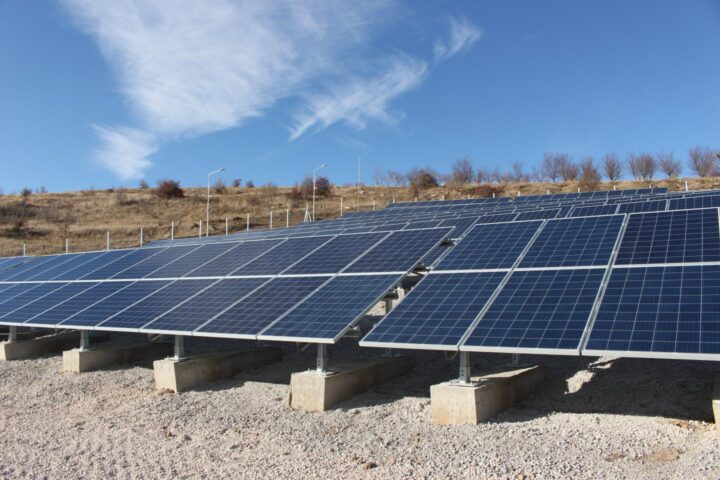Energy Minister Natasa Pilides has assured that international companies active in Cyprus’ exclusive economic zone are moving ahead with their plans to explore for oil and gas despite the pandemic.
Addressing Tuesday’s House Committee on Energy, Pilides said the government is in contact with all the companies, which do not expect further delays due to the coronavirus.
“They are proceeding with their plans according to the timeframes agreed upon,” said Pilides afterwards.
The consortium of Italy’s Eni and France’s Total have postponed their scheduled drills for one year due to the coronavirus pandemic while ExxonMobil is expected to pick up where it left off in September 2021.
There were fears that an oil glut, falling prices, regional tension and the pandemic would discourage energy majors from continuing their Cyprus search.
“We have assurances from all companies that they remain committed to the schedule we have agreed upon,” Pilides said.
ExxonMobil was to carry out two drills in 2020 and another next year, while the Total-Eni venture had planned three drills this year and possibly three more in 2021.
Nicosia has gone ahead with expanding its energy search at a time when Ankara is opposed to it while there is no political solution for Cyprus.
Cyprus has yet to tap any natural gas since the first find in the Aphrodite field in 2011.
The discovery of nearby Egypt’s huge Zohr offshore reservoir in 2015 has stoked interest that Cypriot waters hold the same riches.
Cyprus aims for natural gas to start flowing to Egypt’s LNG facility in 2025, therefore generating its first revenue from natural gas in the same year.
Pilides said Cyprus was also continuing consultations to sign the articles of association with involved neighbouring countries in the Eastern Mediterranean Gas Forum.
Other energy projects
Pilides also pointed to other energy projects such as the first €290 LNG terminal expected to be completed on time next year while she said everything was going to plan on the EuroAsia and EuroAfrica interconnectors.
The minister said that the EuroAsia interconnector and the EuroAfrica interconnector “are proceeding normally and on the basis of planning”.
“The necessary building permits have been issued by Cyprus and contacts are being made with Israel and Greece on the interconnection of Israel, Cyprus and Crete “.
“We are coordinating so that the necessary submissions to the European Commission can be made to finance the project.”
Pilides said, initially, the EuroAsia electricity cable involves high funding that reaches almost €1 bln.
“There are various stages in this project, and we hope in 2021 we see the next stage of financing.”
Israel’s Energy Minister Yuval Steinitz confirmed the timeframe, saying he had recently spoken to Pilides and a trilateral agreement is expected by the end of the year.
The cost of the project is estimated at NIS 3.1 billion, with the financing of the project by the EU and the partner countries, including Israel, to be determined later in accordance with the agreements to be signed between the parties.
The power cable, 1,750 km long and up to three km deep, is expected to leave Israel for Cyprus, from there to Crete and the Greek peninsula, and thus connect to the European grid.
In the initial phase, the cable will be able to receive and transmit 1,000 megawatts, and later its capacity will double.









